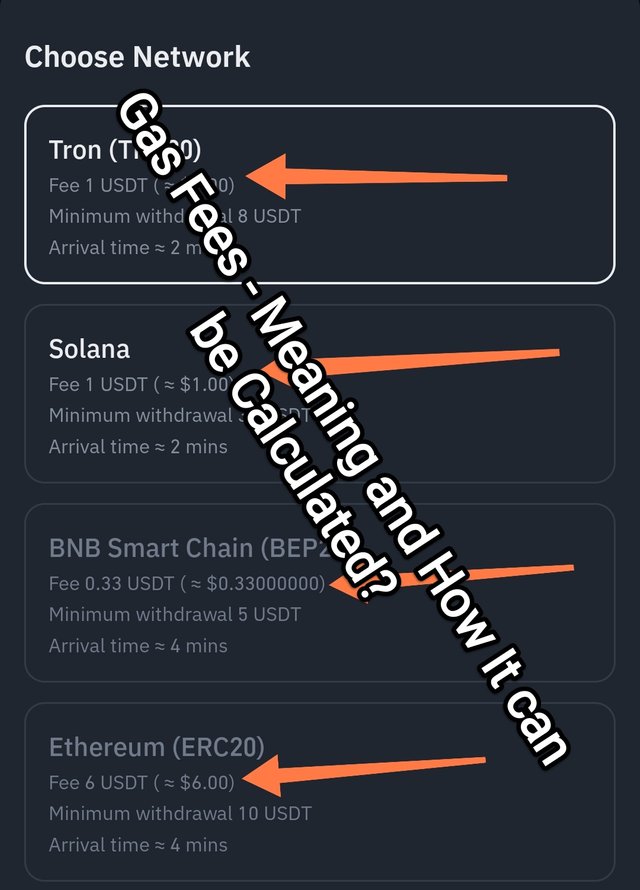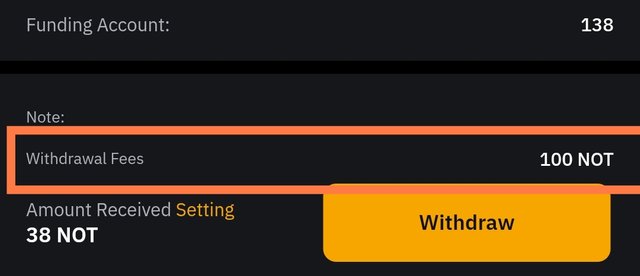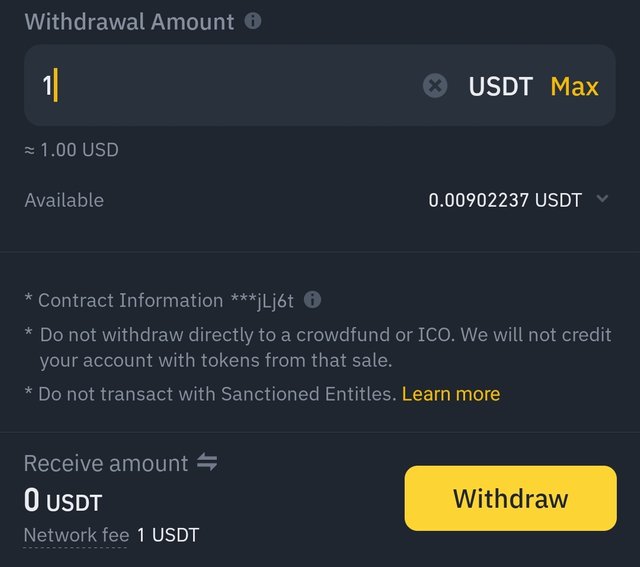Gas Fees - Meaning and How It can be calculated?

screenshot from my binance account
It's no news by many crypto investors and traders that whatever transactions they do has a fee or charge for that transaction to be processed even if it involves the least of assets. This is not an exception to real life as charges also implies. These charges are called gas fees. What are these gas fees and are they just mere charges? How are these fees evaluated? This content will do analysis on this.
Gas Fee |
|---|
Gas fee actually mean the transaction fee required to carryout a transaction on a blockchain network. They are fees that are measured in units and compensates miners for the computational power to process these transactions or contracts which ensures safety of assets .
Gas fees also deter malicious operators from flooding the space with multiple transactions which maintains the stability on it and how it works both short-term and long-term. Network congestion is prevented on the blockchain and delays the transaction with a fee which makes a lot of people run from actually trading it.
I can recall when a popular project launched their coin. The gas fees was even more the original value of the coin. If there weren't any gas fee, the selling pressure can even block or hang the blockchain. Only a few who believed in the project's future did it.
Another thing about had fee is that it these funds collected as transaction fees are used for the development and growth of the crypto ecosystem. So understanding what this has fee means and its purpose will make you see the importance but not all gas fees in projects are worth it.
Gas fees aren't expected to be so high that it can be can't be affordable or investors see it as a waste of resources to get. How does this gas fee system work? Why charges all over?
How does gas fee work |
|---|
Let's imagine fuel used to power a House. Gas fees are like gas used to power blockchains like Ethereum for example. In this network, gas is a unit that measures the total amount of computational power required to carryout a particular activity or transaction. Every action whether big or small will need this gas and would be specified.
** Gas fees aren't really exorbitant as one may think.** These fees ensures the network of a particular Blockchain runs smoothly, is secure, efficient and effective by fairly allocating resources. There are two major terms associated with gas fee which are the gas limit and the gas price.
The gas price is the amount of Ethereum you are willing to pay per unit of gas and this gas price are used or set based on how quickly they want their transaction to be processed just as it's done on a spot trade. You'll choose the amount you want to execute a trade faster.
Gas limit is the maximum amount of gas you are willing to spend on a transaction. For example; sending a crypto asset from one wallet to another may require a gas that is less compared to when operating or carrying out complex smart contracts. This has limit helps prevent excessive use of the network resource as the name implies. There's a limit placed.
Gas fees are calculated by multiplying the gas limit by the gas price that's why I stated earlier that these two terms are very important terms.
Gas Fee = Gas limit × Gas price
Let's use an example to illustrate how this works. If you have a limit of 10,000 units of gas to transfer an Ethereum asset with a gas of 100 gwei which is the unit, the gas fee would be.....
Gas fee = 10000 × 100 = 1,000,000gwei
If we are to convert this gwei to ETH, we have that 1,000,000,000 is equivalent to 1 ETH.
So the gas fee would be 1,000,000/1,000,000,000 = 0.001 ETH
This is the fee paid to miners who would validate and process these transactions, ensuring safety.
There are various factors which affects gas fees. These are; Complex smart contracts, increased demand and network congestion, market dynamics etc.
What happens when gas fee is high? |
|---|
When gas fee is high, it becomes a problem. It can discourage users who wants to place small transactions from doing so because of the uneconomical nature of the fee compared to their transaction. Imagine being charged a fee worth a dollar of ethereum and you're getting just $2 for it. It's very discouraging.
All these startups and developers who sim at creating services that rely on small transactions may find it untenable due to the high gas fee. It can also impact the attractiveness oh blockchain Network which affects small transactions and daily usage. Addressing this issue through technological advancements such as the development of Layer 2 solutions can make this Blockchain scalable and viable as well.
In conclusion, gas fees are known by the transaction and address and can be very high which discourages small transactions. Imagine transacting $3 and you're being charged a dollar and you're doing this daily. You'll definitely waste a lot of fee at the end of it. It's also important because these fees are used to improve the blockchain's ecosystem and growth.
All screenshots are from my binance and bybit account
Disclaimer :Any financial and crypto market information provided in this post was written for informational purposes only and does not constitute 100% investment advice. It's just basic knowledge every crypto trader or investor should have


Note:-The X Promotion link is missing and the post title can be improved.
Regards,
@theentertainer
Done. Thanks for the review. Sometimes my twitter locks me out for hours before freeing. I've taken note of the suggestion in title
https://twitter.com/bossj23Mod/status/1798844902459212113?s=19